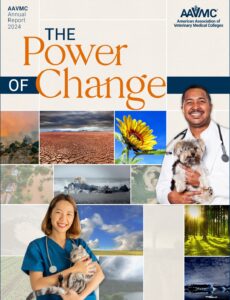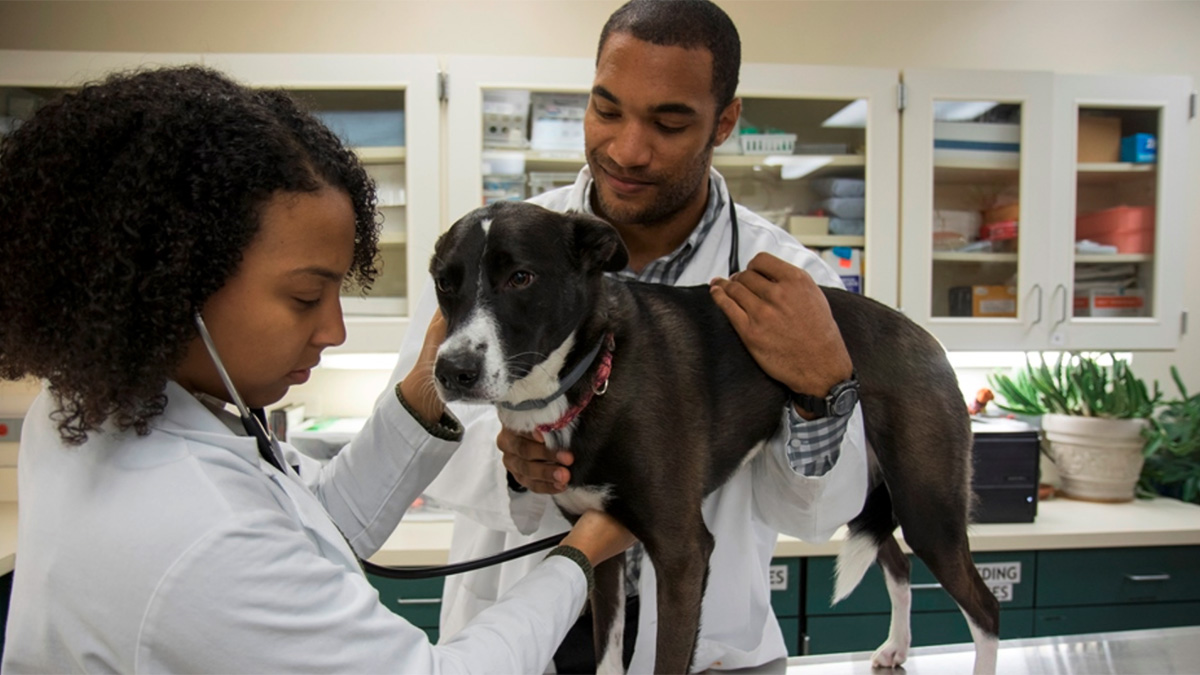CIVME Meets, Presents at the AAVMC Annual Conference March 3-5, 2021 (cont.)
The section of the presentation focusing on student engagement looked at how the pandemic had impacted the mechanisms institutions use to assess student engagement and the challenges they experienced in communicating with students and faculty. In both aspects, schools reported innovative approaches and the use of multiple, different methods to establish and maintain engagement with students. The impact of changes in the mode of delivery on engagement were also considered. It was clear that there were significant challenges in engaging and motivating students via online rather than on campus delivery including the necessary technological and physical infrastructure required and the skill sets of both faculty and students. All institutions reported that the sense of community was affected by the pandemic, often in different ways for different groups; importantly, it was clear that creative approaches were utilized to manage and support engagement and many of these will be maintained as institutions move towards their new normal.
Lastly, reports collected by CIVME indicate COVID-19, pandemic-associated mental health concerns, anxiety, stress and depression. Veterinary faculty, students and support staff reported grieving the loss of family members, the loss of tradition and normalcy, struggles with loneliness, long working hours and difficult schedules. Students and colleagues worldwide shared increased understanding, support and tolerance, while institutions reported becoming more mindful of vulnerable populations and their needs and responding with increasing counselling services and wellness programs.
In summary, despite the negative COVID-19 pressures, the pandemic has helped veterinary colleagues and students come together. The terms communication, collaboration and engagement are more meaningful that ever before. Investments in online education have been substantial, yet necessary and worthwhile for the future of veterinary education.
Focus on CIVME Veterinary Educators (cont.)
Dr. Ayayi Justin Ayih-Akakpo
During this same period, Professor AYIH-AKAKPO conducted additional training in “Bacteriological and serological diagnosis of animal mycoplasmosis,” for the identification of Brucella at the National Institute of Agronomic Research (INRA) of Tours (France) in 1983 and at the Bacteriology Laboratory of the Institute for Teaching Tropical Veterinary Medicine (IEMVT) at Maisons Alfort (France) in 1981 and in “Statistics, Epidemiology and Applied Informatics” at the Université Libre de Bruxelles (ULB) (Belgium) in 1989. Always keen to be up to date with new teaching methods, Professor AYIH-AKAKPO took a course in creating online courses for distance learning in 2005 and 2010.
Professor Ayih-Akakpo also supervised numerous veterinary and university theses with the capacity to set up research activities locally in material conditions that are not always obvious. In addition, he is a member of various scientific councils, including EISMV and ISRA (Senegal), CNRA (Mali), CIRDES (Burkina Faso), and AfriqueOne research consortium (Cote d’Ivoire). He has largely contributed and advanced veterinary training at the Dakar school not only in the form of courses (an activity that he masters perfectly) but also handouts, the establishment of distance education (e-learning) which testifies to his willingness to adapt to the most modern teaching methods. In this context, he is the author and co-author of ten books on rinderpest and contagious bovine pleuropneumonia, Q fever, sheep farming in tropical Africa and pathology, animal hygiene and health, botulism, hemorrhagic septicemia in cattle, the genus Pasteurella and Pasteurellosis. It should be noted that before his retirement, he contributed to setting up the Master 2 in Epidemiology and Health Risk Management at the EISMV which has been running every year since it opened in 2008.
Professor Ayih-Akakpo continues to be widely involved in veterinary professional training by participating in numerous continuing training courses such as (i) improving the effectiveness of the participation of African Nations in the activities of the SPS Committee of the WTO and international organizations responsible for developing standards (Bamako, UA-IBAR, July 2009); (ii) the training workshop for field epidemiologists and laboratory technicians (Dakar, FAO-ECTAD, July 2010); (iii) the training workshop on “Field tools for the surveillance, diagnosis, prevention, and control of major transboundary animal diseases” (Douala and Bamako, APHIS-USDA, July 2011). He is also a visiting teacher in several veterinary education and animal production establishments in Africa, including in Cameroon (University of the Mountains), Togo, Tunisia, Rwanda, and Senegal. He is familiar with administrative responsibilities; he notably served on numerous occasions as the interim director of the Veterinary School of Dakar and worked for the recognition of his establishment as OIE Collaborating Center for training and diagnosis of infectious animal diseases in Africa.
Finally, his international activities are numerous and varied, in particular as an expert consultant of the numerous regional and international organizations (UEMOA ,where he was the first President of the Regional Committee for Veterinary Medicines, ECOWAS, SADC, AU, FAO, World Bank).






SHARE